"We are prepared to handle this second wave of Covid-19 and equipped for it." The guarantee is given by the director of the Intensive Medicine Service of the Portimão unit of the Centro Hospitalar Universitário do Algarve, whose Intensive Care Unit is now 20 years old.
«From a practical point of view, we are currently well equipped and clearly prepared» emphasizes specialist physician Alexandre Baptista, who heads a team of 8 doctors, 33 nurses and 12 assistants.
The Intensive Care Unit (ICU) of the hospital in Portimão, which has been in operation for two decades on Friday, October 2, currently has 11 beds, eight of which are now occupied by as many patients. O Sul Informação visited the UCI yesterday, to learn about the conditions of this service, which, in recent months, has been in the mouth of the world due to the Covid-19 pandemic.
In fact, specially designed for these patients, there is another wing of the ICU almost adjacent to this one, “isolated and with totally separate circuits”, which is prepared and equipped, but closed, waiting to be needed again. At the moment, of the 16 patients in the Algarve with Covid-19 who are hospitalized, only 4 are in Intensive Care, but from the hospital in Faro.
Three people infected by the SARS-Cov-3 virus passed through the Portimão unit at the beginning of the pandemic, but were eventually transferred to Faro.
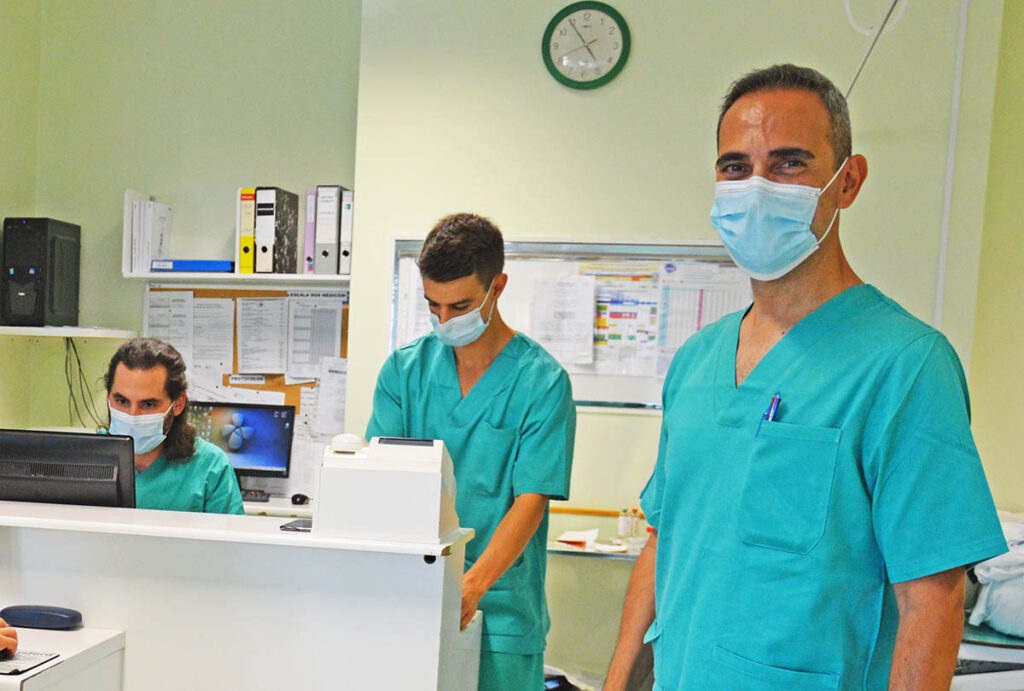
But not only patients with Covid-19 live an ICU. Alexandre Baptista points out that now «there is so much talk about Intensive Care, so much is seen on television and in newspapers, but they have existed for many years and for so long they were almost seen by the public as a necessary evil. But the existence of critically ill patients and serious situations requires this Intensive Care».
The director of the service adds that “there is no place in a hospital where the imminent danger to life is as high as in an ICU unit. This is where the worst patients in the hospital are».
Interestingly, when the then new Hospital do Barlavento Algarvio, in Portimão, was inaugurated in 1999, it did not have an ICU. “Many of the peripheral hospitals did not have these units”, recalls Alexandre Baptista.
But from the outset, the challenge was launched to create a UCI here, which was then inaugurated about a year later, on October 2, 2000.
And what distinguishes an ICU from a normal ward? For now, access, since it is a unit "with limited access". Afterwards, it is a place "with much greater capacity for patient surveillance", not only because of the way its architecture is conceived - there is a central station, from which you can see all the beds, all the patients -, as in the fact that each nurse can only have “two patients and no more”. "A patient is never left without someone looking at him."
In addition, there is also the “quick proximity of the medical staff”, since, in the ICU, there is the “constant presence of a clinician inside the unit”.
Finally, there are the «technical capabilities», in terms of equipment, which allow «to replace any organ». Because, explains Alexandre Baptista, "the seriousness of the clinical situation is often related to organ failure" and, in the ICU, there are machines that replace lungs, kidneys and heart, allowing to keep the patient alive, even if one or more these organs fail.
And is the equipment sufficient and modern? The director of the Intensive Medicine Service says yes: «there was an investment by the National Health Service, in equipment that is still coming to us» and there was also «close help from the Portimão City Council and the Municipal Civil Protection», decided soon at the beginning of the pandemic, which ordered and delivered to the hospital state-of-the-art, "top-of-the-range" ventilators (which are not yet in operation, but are already prepared), as well as Pulmovista, an innovative device, the first to work in the country , which allows real-time visualization at the patient's bedside of the air flows in the lungs».
"This technology translates into gains in the efficiency of the treatment of critically ill patients, avoiding, for example, their displacement to carry out complementary diagnostic tests". Yesterday, when the Sul Informação he visited the ICU, there was a patient connected to the Pulmovista, with the clear blue image of air entering and leaving his lungs perfectly visible.
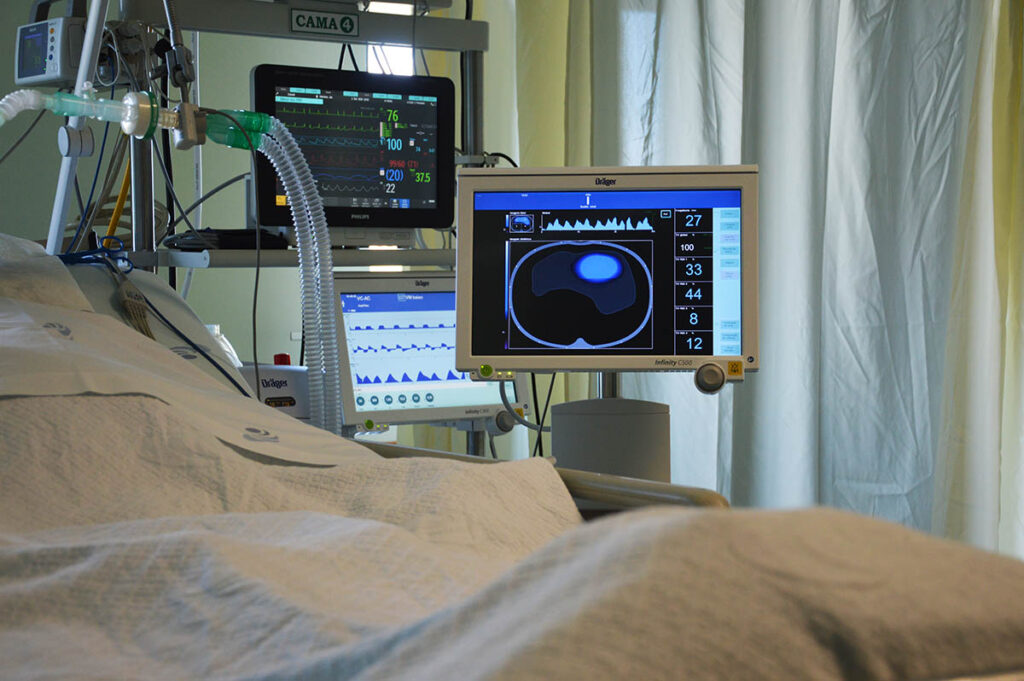
“If we were talking about ten months ago, I would say that we had some equipment deficits. But not now», stresses the doctor. Of course, he adds with a smile that the mask hides but reaches his eyes, “we never have everything, everything. There is always more this or that equipment to be invented…».
What about human resources? Are the eight doctors, 33 nurses and 12 assistants arriving? "It's short! The team should be bigger, but we work with what we have», he admits.
The main issue is that exceptional situations such as this one of the pandemic force nurses from the Intermediate Care Unit, which is also part of the Intensive Care Unit, to be transferred to the Intensive Care Unit. And you have to give them specific training, which takes months.
“The most difficult thing is the integration of the staff, their training. It takes six months for a nurse to be alone with a patient in the ICU”. Therefore, explains Alexandre Baptista, “when this started, with the entry of the first Covid patients, there was a need to reorganize the teams, namely the nursing ones. But all were, little by little, being integrated and today the nursing staff is better prepared to deal with the situation” of the new disease.
The director of the Service, who has already been to other hospitals before coming to Portimão, is keen to emphasize the spirit that is lived there: “the people who work here have a great capacity to adapt and to give themselves to the hospital. It's easy, if we ask someone for help, that someone will help».
For all these reasons, the doctor Alexandre Baptista guarantees: "when I get up in the morning to come to work, I don't come in a bad mood, on the contrary!"
One of the things that keeps you in that frame of mind is the certainty that your service is now better prepared, in terms of people, procedures and equipment, for the second wave of Covid-19. "At this point, all the doubts we had about how to proceed have already been removed." Furthermore, he stresses, “there is a Contingency Plan adapted by the experience gained in the first wave”.
And what does specialist physician Alexandre Baptista think, after months of dealing with this new disease, who says that this is "just a flu"? «I wish it was a flu, I liked it a lot!», he replies immediately.
“The first wave was not superficial situations. We had three patients here and all of them were patients with serious decompensations, with serious organ failures. We are used to dealing with very serious patients, but even within Intensive Care Medicine, patients are not all the same. These are very hard work, quickly decompensate».
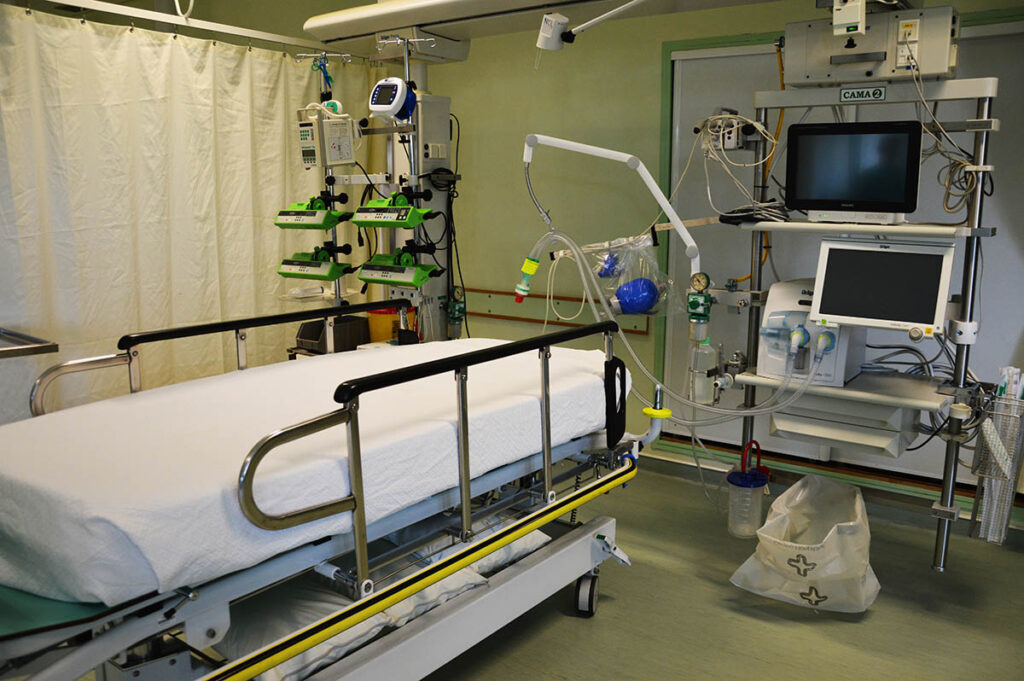
Working in an Intensive Care Unit means dealing every day, at all hours, with extreme situations, between life and death. Statistically, 75% of patients in an ICU "get away with it".
“But we have many situations of patients who survive when we didn't give anything for them. It is extremely common to have predicted mortality rates above 80%. And we got into desperate treatments, for not wanting to give up on that patient, even when in front of us there is a desperate clinical condition», admits the director of the Service.
And it's because they don't give up - and also thanks to a little help of the sick person or who knows what else or who… – that «sometimes we have joys that surprise us!»
«There are situations that make us sweat a little more, but which later end up being gratifying for us», when the patient recovers and leaves the ICU.
Alexandre Baptista recalls some «situations that mark us and that we never forget». One of them happened in 2018 or 2019, he doesn't remember well, during the European Rhythmic Gymnastics Championships, which took place in Portimão. “There was an 18-year-old gymnast who went into cardio-respiratory arrest during the competition. It was a tricky situation because she had been without advanced life support for a long time. When he arrived here at our ICU, in the first days, because of the exaggerated time that his heart stopped, we all said that either he died or a vegetable remained».
“But the girl must have heard us talking and, little by little, she evolved. It ended up recovering. Back to gymnastics, back to studying!»
Another situation had to do with a young Russian woman on vacation in Lagos who “had an accident in her kayak. When he arrived here, it was a very serious situation, with an expected mortality rate above 90%. But we managed to stabilize it. Later, because of another situation, she was transferred to the Hospital de Santa Maria, in Lisbon, but it was here in the ICU that she overcame. Today, he continues to travel around the world».
With the images of the Intensive Care Units, of patients connected to tubes and machines full of colors and sounds, invading our homes, through the television series, has the doctor Alexandre Baptista ever lived movie situation in your ICU?
“Yes, a few months ago. A woman was admitted to the hospital in a very serious situation and came to the ICU. We tried to stabilize the lady, she seemed to be responding to treatment, and when we turned and walked away, luckily, I'm not even sure why, I looked back and saw that she was going into cardio-respiratory arrest. We immediately started the maneuvers and got the lady's heart to beat again. What if I hadn't looked back then?”
Photos: Elisabete Rodrigues | Sul Informação
Help us to do the Sul Informação!
Contribute your donation so that we can continue to make your journal!
Click here to support us (Paypal)
Or use our IBAN PT50 0018 0003 38929600020 44
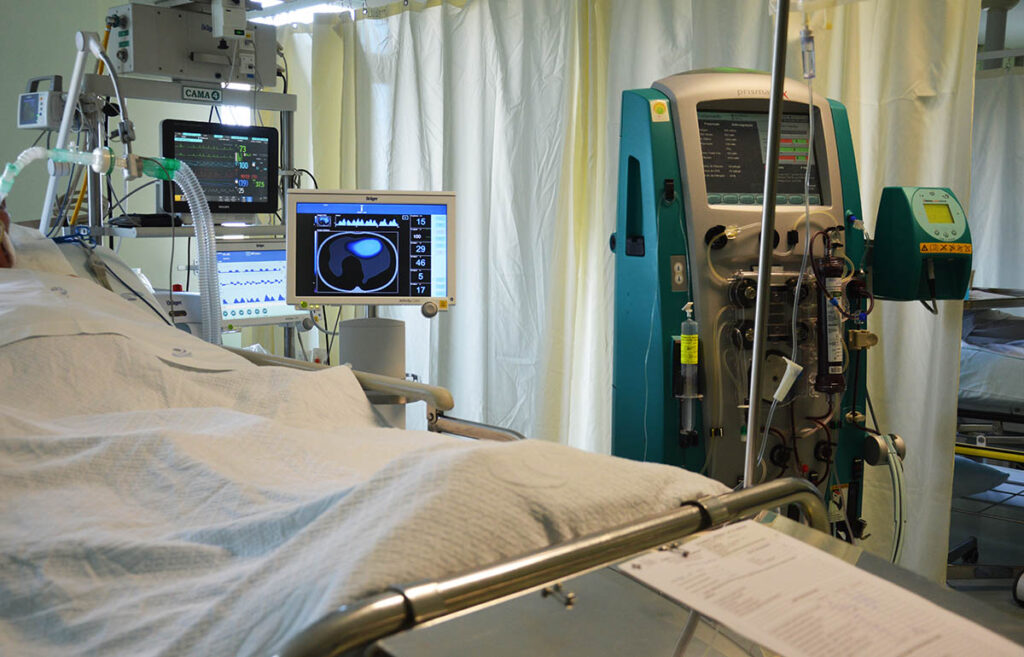
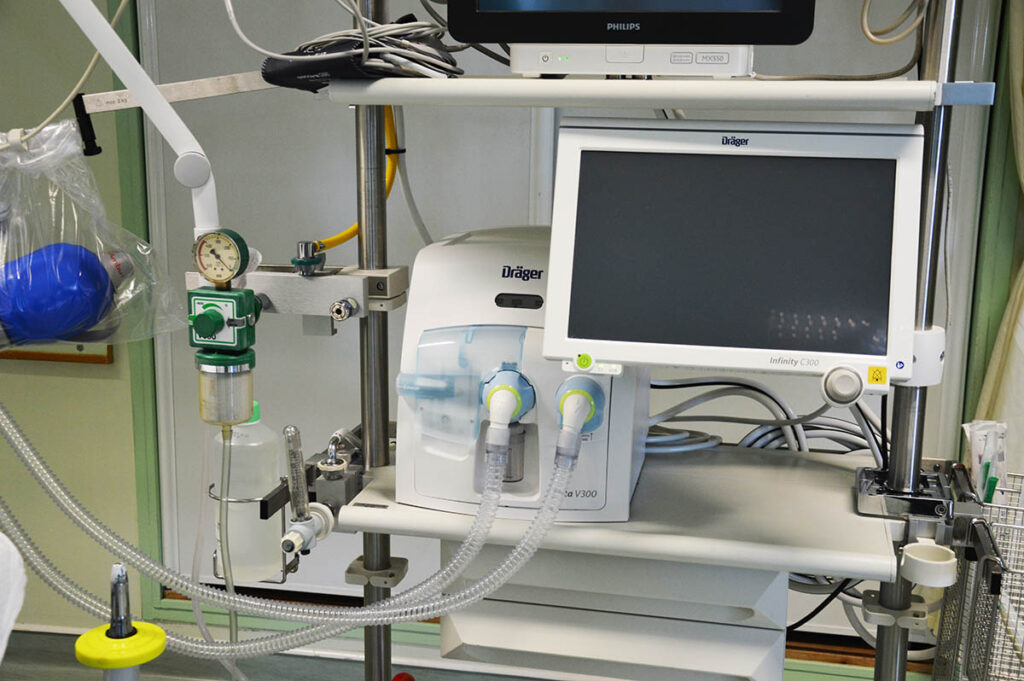
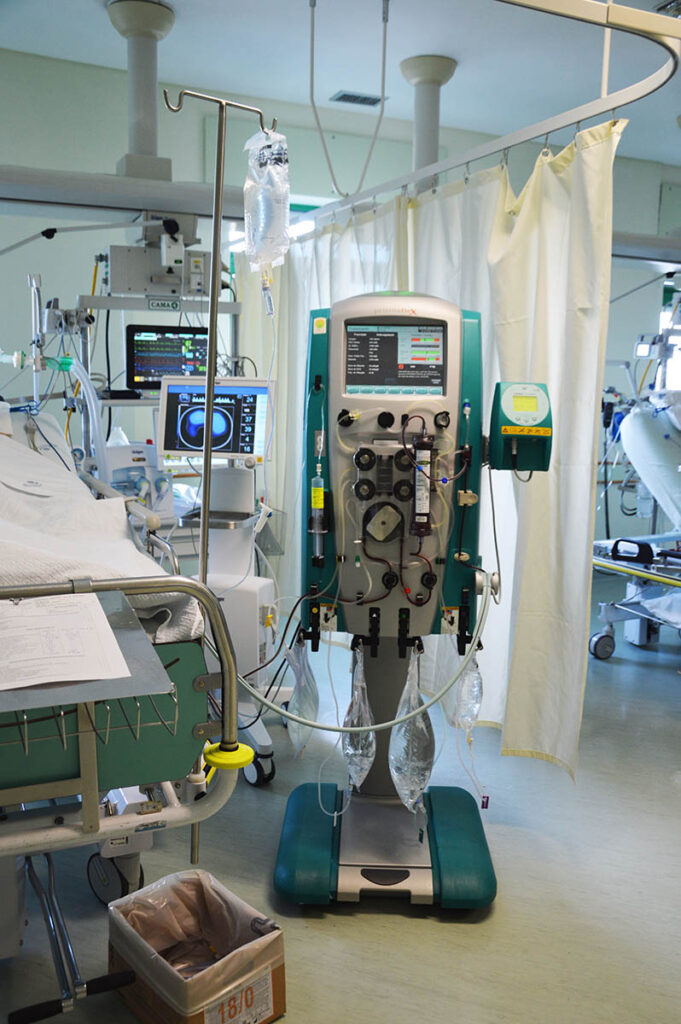
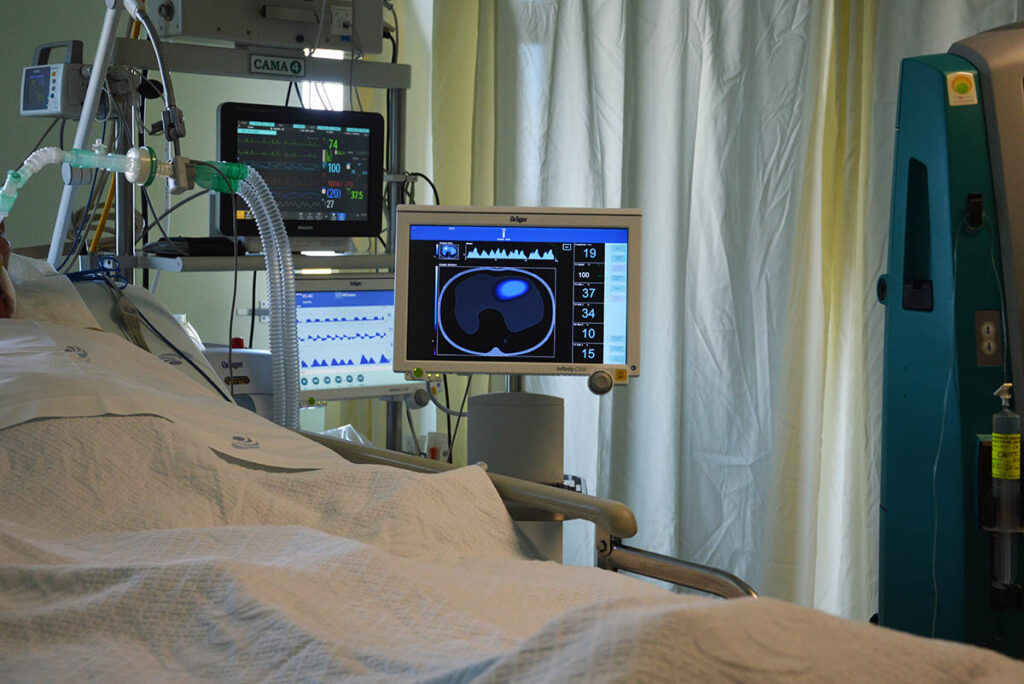
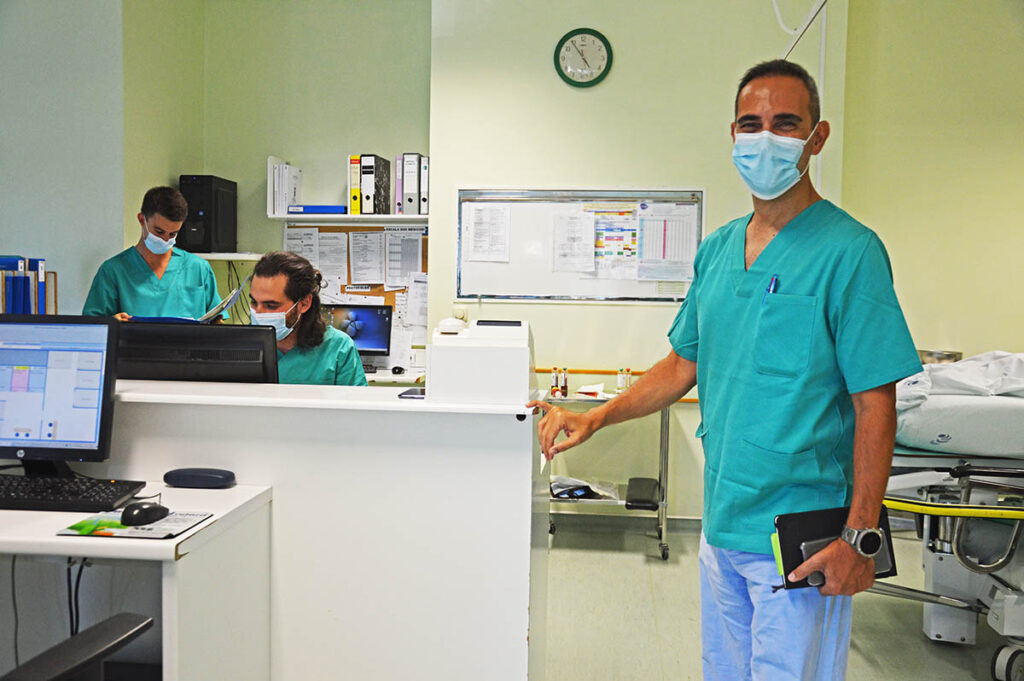
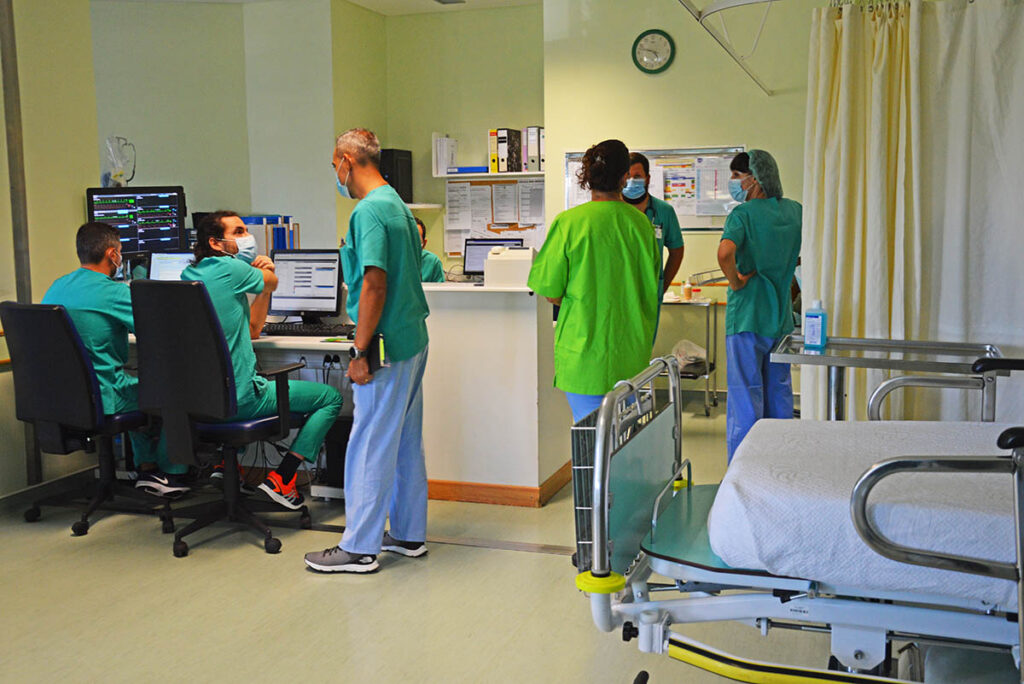


















Comments